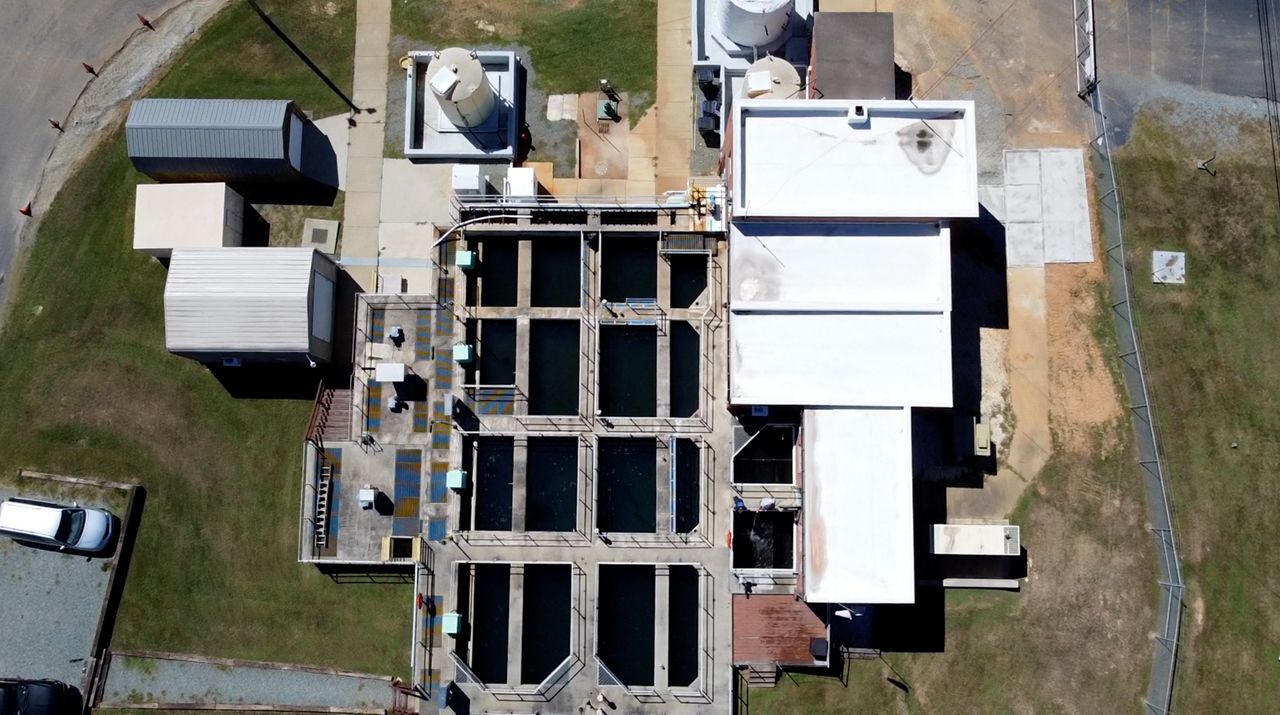PITTSBORO, N.C — Municipalities throughout the Cape Fear River Basin are all attempting to undo the damage from years of chemicals being released into drinking water reservoirs for decades.

What You Need To Know
Exposure to PFAS chemicals could potentially impact immune system and thyroid function
Cities are implementing different technology to filter out the chemicals
Research to understand health effects post-exposure is ongoing
A chemical known as GenX came to the attention of North Carolinians everywhere in 2017 when it was discovered that people throughout the Cape Fear River Basin had been exposed to the toxic chemical through their drinking water for the past 40 years.
“These chemicals, not only have they been manufactured at the Fayetteville Works Plant, but they've also been used since the 1940 for things like textile manufacturing, furniture manufacturing, all of these type of things have happened in the Cape Fear River Basin,” said Dr. Jane Hoppin, a professor of biological sciences at N.C. State.

As PFAS lawsuits slowly make their way through the court system, Pittsboro, like many other towns and cities, is still working to remove chemicals from its drinking water. The town installed new filtration technology in August and received its first set of data in September, showing an 85% reduction in chemicals.
“The GAC system is just an additional format of filtering our water, it takes PFAS and other chemicals out of the water. It acts pretty much just like a giant Brita filter,” Colby Sawyer, with the Town of Pittsboro, said. “The longer we put clean filtered water into our utility system any existing concentrations of PFAS in our storage system or our distribution pipes will continue to decrease.”
The ideal goal would be completely PFAS-free water, but that's a high standard with an expensive price tag for taxpayers. He said they should be able to remove over 90% of chemicals with the Granular Activated Carbon Filter which costs right around $3.5 million.
“GAC isn't going anywhere, we will always keep GAC. We are looking at ways to expand this operation and include those other types of filtration, the ion exchange, the reverse osmosis. It's just very very expensive,” Sawyer said.

While research at water treatment plants is ongoing, scientists are also continuing studies to identify the health risks related to consuming PFAS chemicals. Hoppin shared that their research so far has shown exposure significantly higher than the national average.
“The median level in our sample, which is the halfway point, exceeded the 95th percentile for the U.S. populations,” Hoppin said. “What people want to know is are there health effects and what we do know about PFAS is that we expect that they interfere with important biological systems, your immune system, your thyroid, which controls your weight and your metabolism and your skin temperatures.”
She also said PFAS is being monitored on a national scale through the EPA and PFOA, and PFOS are being considered for being listed as hazardous chemicals.
